Taxi shortage causing stress and frustration for wheelchair users
- Published

Chris Lynch has been using a wheelchair since he was six
Most people will have had the stressful experience of not being able to get a taxi home after a night out.
But for wheelchair users, the inability to get a taxi can mean missing a hospital appointment or a social event.
Film-maker Chris Lynch has been in a wheelchair from the age of six.
He is not a regular user of wheelchair-accessible taxis but this is not through choice, he said, but because there is not enough of them.
"I can't plan ahead, particularly at night," he said. "The glider (bus) is my only option and I have just excluded taxis from my planning altogether.
"There are some private accessible taxis but most of the ones I speak to are of an age that they no longer want to work in the evenings.
"They would mostly be doing runs to the hospital or airport pick-ups during the day."
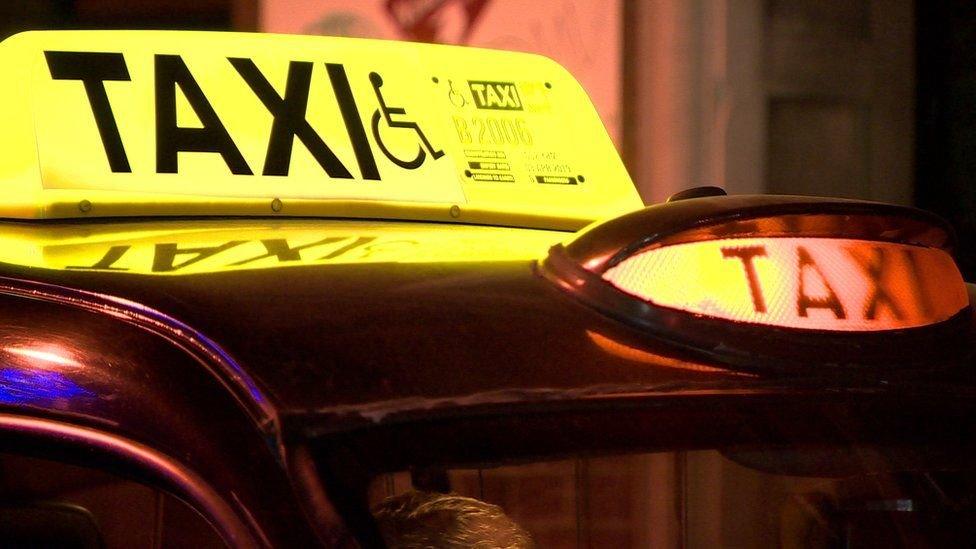
The shortage of taxis post-Covid has been a talking point for a while now but issues around specialist cabs are perhaps not as well known.
Recent statistics released by the Driver & Vehicle Agency (DVA) show a drop in wheelchair-accessible taxis from 499 to 373 in the last year.
Pre-pandemic, Paul McCoey worked in airport transfers but when flights stopped he moved into wheelchair-accessible transport.
The Dunmurry-based businessman said there was a huge demand for the taxis and that he takes calls from Bangor, Carrickfergus and Holywood.
"I have heard from a lot of my clients about taxis that have not come or have come late, which is hard as they are normally going to appointments," he said.
"The big issue is cost, for these pick-ups I am having to travel to them but I am always upfront about the price of a fare."
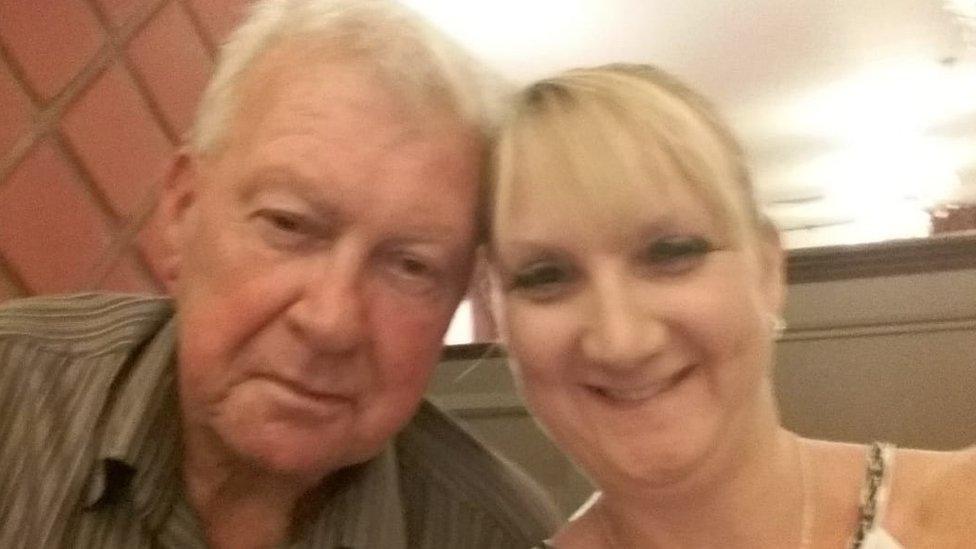
A shortage of wheelchair-accessible taxis is a problem Lynn Smyth understands well - her father Brian McAvoy has been told he needs to go to hospital once a month for a six-hour treatment on his stomach.
He has been living at the Somme nursing home in east Belfast for the past two months, and Lynn feels it is her responsibility to get him to his appointment at the Ulster Hospital in Dundonald.
He cannot travel in his daughter's car but Ms Smyth has struggled to book a suitable taxi in advance.
"It was the first time I ever had to book a wheelchair taxi," she said.
"I contacted about five or six different companies in Belfast with most of them telling me to book closer to the time.
"One firm told me I would need to ring on the morning of his appointment and another said the day before."
Another taxi company told Ms Smyth that because their drivers were self-employed, they could not guarantee a wheelchair-accessible vehicle would be available.
"He needs to be at the Ulster Hospital at 09:00, he needs to be transferred once a month, it is guaranteed money as I am not going to cancel," she said.
"I have taken the day off work to go with him.
"I just can't handle the stress of booking the taxi on the morning of and hoping."

'Demand exceeds what we can offer'
Disability Action, Northern Ireland's largest pan-disability organisation, said access to taxis and public transport has always been an issue.
"We are hearing from disabled people who we speak to and represent that this is only becoming more challenging in a post-Covid world," said the group's head of policy Nuala Toman.
She said Belfast's accessible Glider bus had been a welcome positive but she would like to see it rolled out across the city.
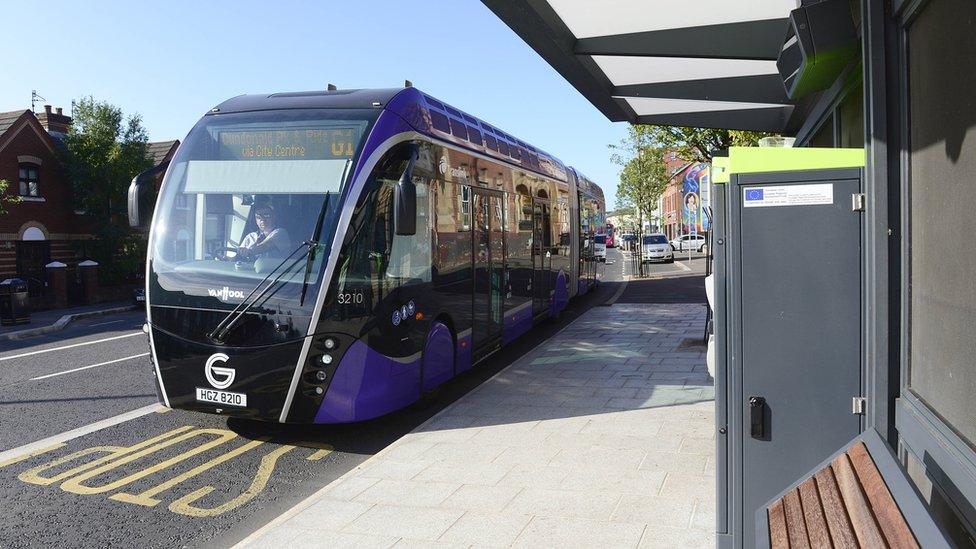
Disability Action said the accessible Glider bus had been a welcome positive but should be rolled out across Belfast
The organisation also runs the Disability Action Transport Scheme (DATS), external, in conjunction with the Department of Infrastructure.
The service is largely available Monday to Friday between 09:00 and 17:00.
"It is mostly Belfast based but even the demand there exceeds what we can offer," Ms Toman said.
"What we want is a wraparound service, so that those with disabilities can go out for a meal in the evening, shopping at the weekend or attend work outside of these hours."

The accessibility issue is only one part of the taxi shortage story in Northern Ireland.
The DVA statistics show the number of licensed taxi drivers at the end of March 2022 was 8,152, a fall of 7% from the previous March.
The number of taxis also dropped by 25% to 6,733, with some depots in Northern Ireland sharing vehicles.
Class-D taxis, such as black cabs which are licensed to operate along set routes, fell by more than half in the last year from 140 to 58.
Stephen Anton, communications manager at Fonacab, said the firm is down 30% on their pre-pandemic driver numbers.
He said demand was outweighing supply, with a lot of drivers just working Monday to Friday as there was enough business to keep them going.
"They are self-employed, they can pick and choose when they work, which they are entitled to do but that leaves a shortage on evening and weekends," he said.
"People think that a taxi is a luxury for those socialising but you need to remember some rely on them.
"The pensioner going to a doctor's appointment, the mother and children going to the shop or child going to school. They have no alternative."
Related topics
- Published7 March 2022
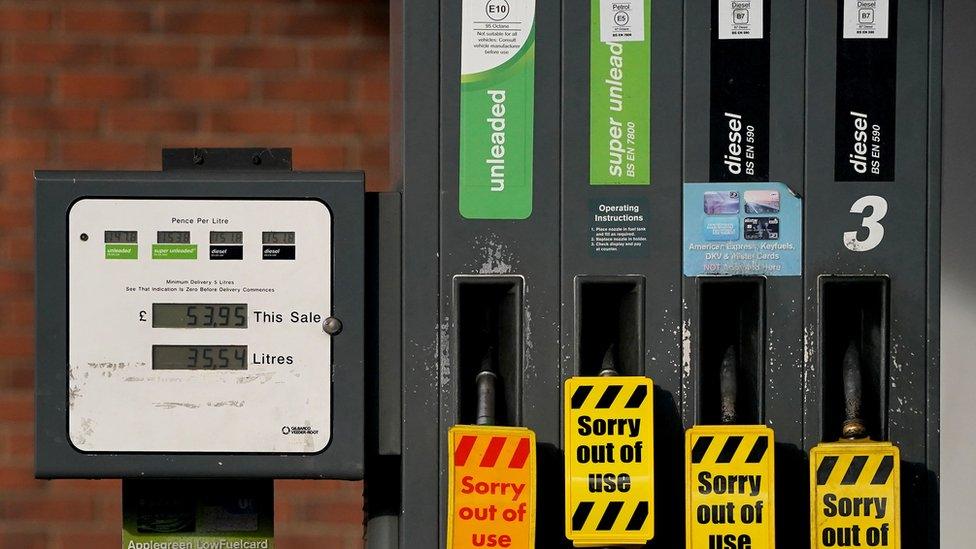
- Published17 November 2021
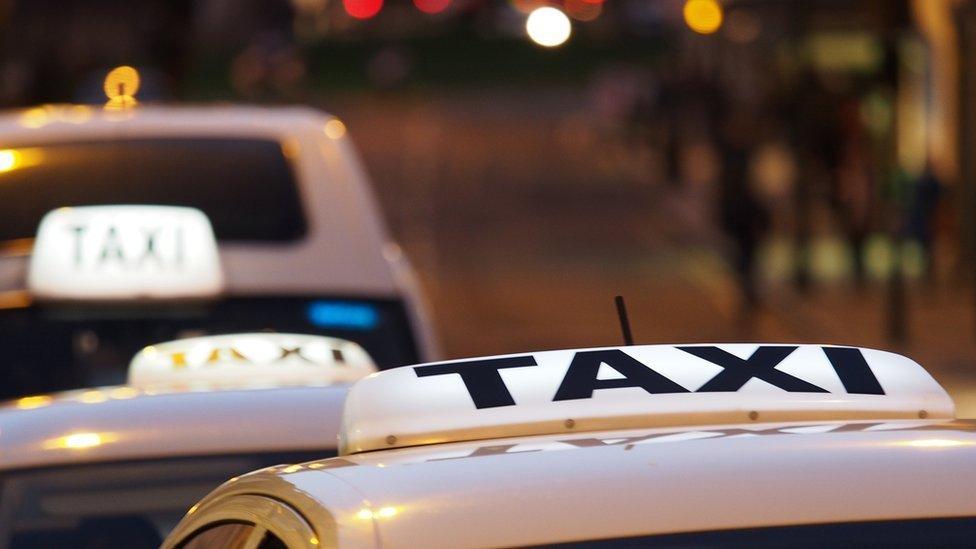
- Published9 June 2021
